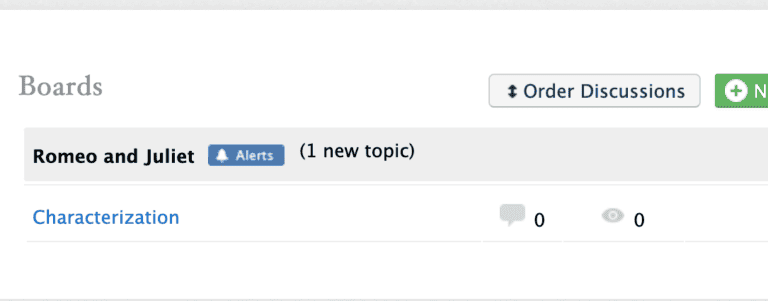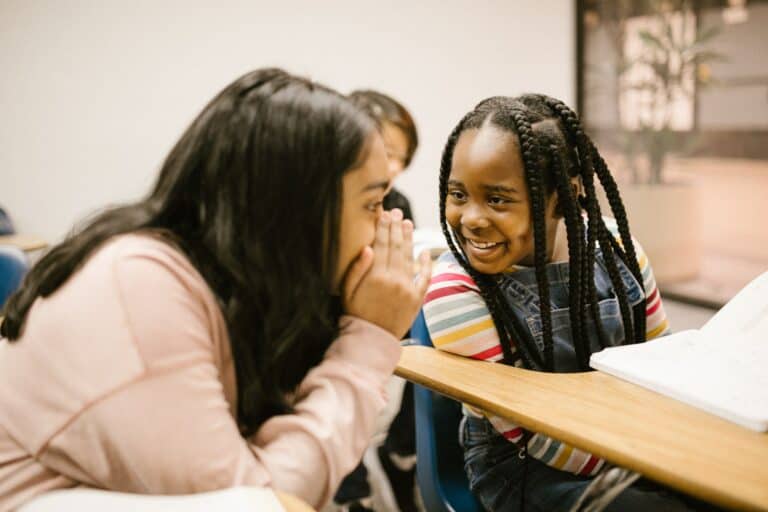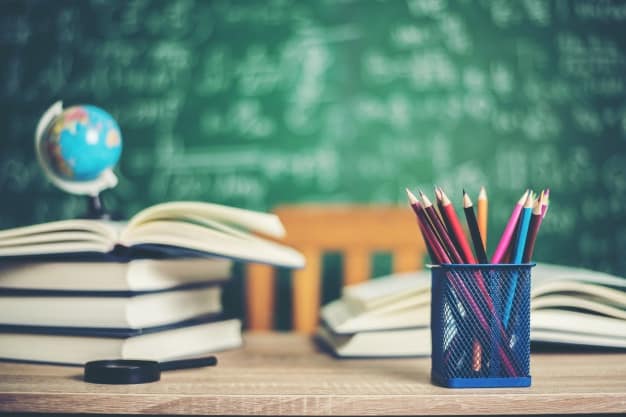Cotter’s Blotter: Learning Loss, Stellar Teachers, and SEL
by Cotter Donnell
Welcome to the latest installment of Cotter’s Blotter, a biweekly blog post where I share some of the education resources, interesting ideas, and captivating questions we’re thinking about at R.E.A.L.® Here’s a quick roundup of some of the ideas that have been on my mind and some of the things we’ve been talking about at R.E.A.L.® this week.
COVID Learning Loss
I’ve been visiting a lot of schools lately, talking to educators about what is happening in their communities and how they are making learning more authentic and meaningful.
I find I am hearing about a lot of the same concerns. Chief among them: so-called “learning loss” from COVID. Following the interruptions, closures, forced adjustments, and trauma brought on by the pandemic, teachers and school leaders around the world are seeing that students just aren’t where they’ve typically been in terms of development and understanding. Many school leaders refer to this phenomenon as “learning loss.”
In her op-ed “Can We Please Stop Talking About So-called Learning Loss,” Stanford professor Jo Boaler poses an alternate perspective: perhaps students didn’t really lose learning during the pandemic; rather, maybe they just learned different kinds of things. The piece got me thinking about how we talk about student achievement – and what kinds of experiences lead to deep and meaningful learning.
“Did students lose learning during the pandemic? Or did they replace the learning of facts and methods, the sort of rote learning that might bring success on a test, with knowledge and insights about the world, health challenges, global upheaval, exponential growth, technology and ways to help their families and navigate complex social situations?”
– Jo Boaler
We at R.E.A.L.® believe it’s critical to arm teachers with the skills they need to help students navigate this brave new post-COVID world.
High Performing Teaching in Low-Tech Classrooms
This post from Larry Cuban’s blog recently made the rounds here at R.E.A.L.® Inspired by a 2010 Slate Magazine story about the best classrooms in the world, Cuban’s post examines high-performing teachers in low-tech classrooms. The main point: wherever you go in the world or whatever kinds of technology are available, the most meaningful learning happens in classrooms where teachers focus more of their attention on meaningful learning activities than on tech integration and cool gadgets.
As Cuban writes, whether or not students have access to the latest tech tools, first-rate teachers “still have to figure out the specific objectives for the next lesson, how to get students engaged, what activities will hit the desired objectives, and how will they know that students grasped those objectives.” For us at R.E.A.L ®, class discussion is the perfect example of Cuban’s thesis at work. A thoughtfully designed and well-run class discussion develops critical thinking, builds student confidence, and strengthens the class community – no computers or tablets needed!
“You gotta live being who you say you are…”
Many people know Yvon Chouinard, the lifelong outdoorsman and self-described “reluctant businessman,” as the founder of Patagonia. Chouinard made headlines in September when he and his family essentially gave away the company, transferring ownership to a trust that will channel all profits not reinvested in the company to support environmental causes.
Chouinard sat down with surfer and writer Jamie Brisick to record an episode of the Surfer’s Journal podcast “Soundings.” During their wide-ranging conversation, the outdoor industry’s philosopher-king shared his thoughts on the environmental crisis, authenticity, the outdoor industry, and what it means to live meaningful life. Perhaps his most memorable takeaway: “It’s a lot of fun to break the rules.” How prudent – and how applicable to learning both in and outside the classroom.
SEL and Long-Term Success
In this Education Next article, researchers use a value-added approach to examining the impacts of a schoolwide commitment to student Social-Emotional Learning. By surveying over 157,000 students from Chicago Public Schools over a period of seven years, researchers were able to track trends in short- and long-term outcomes for student achievement.
Like R.E.A.L.®, the study uses the Collaborative for Academic, Social, and Emotional Learning (CASEL) framework to define key SEL skills:things like self-management, responsible decision-making, social awareness, self-awareness, and relationship skills. While many SEL programs introduce these skills to students, R.E.A.L.® integrates SEL skills into a content-rich humanities curriculum.
According to the study, schools that place a high value on Social-Emotional Learning improve student achievement across a variety of metrics including test scores, student behavior, graduation rates, and college enrollment. Furthermore, students report more engagement in school and feel a stronger connection to their school communities after graduating. These results come as no surprise to us here at R.E.A.L.®; we hear about these outcomes from our member schools all the time!
Have a great week,
Cotter





